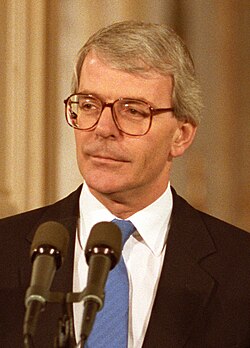
Introduction
John Major served as the Prime Minister of the United Kingdom from 1990 to 1997, a period marked by significant political and economic changes. Understanding Major’s influence is crucial, especially as debates over his government’s policies resurface in contemporary discussions about Brexit and the current political landscape. His tenure saw the transition from the Thatcher era and the complexities of a rapidly changing world, making his legacy of great relevance today.
Political Background and Rise
Born on March 29, 1943, John Major emerged from a humble background, yet rose through the ranks of the Conservative Party. His initial roles included being a Member of Parliament for Huntingdon and serving in multiple ministerial positions. Major became Prime Minister after Margaret Thatcher’s resignation, inheriting a divided party and a challenging economic environment. His leadership style, marked by a focus on consensus and pragmatism, contrasted with his predecessor’s more confrontational approach.
Key Policies and Events
During his premiership, Major witnessed and tackled several significant issues. One of the most notable was the Gulf War in 1991, where the UK played a key role in the coalition against Iraq. His government’s domestic policies were focused on economic recovery following a recession at the start of the 1990s. However, Major’s era also faced challenges such as the Internal Market and opinions on Europe, as his government grappled with the Maastricht Treaty, which sought to deepen European integration.
Moreover, Major’s attempts to combat the various factions within his party over European integration led to political turmoil and splits, highlighting difficulties in maintaining party unity—a challenge that resonates in today’s political climate as well.
After Politics: Life and Legacy
After leaving office, John Major continued to engage in public life, taking up numerous charitable and non-political roles, including involvement in various charitable foundations and speaking at public events. His unique perspective on modern governance and ongoing commentary on Brexit and public policy continues to contribute to the national debate.
Conclusion
John Major’s time as Prime Minister was both transformative and tumultuous, influencing not only his party but also the direction of British politics. As the UK navigates its post-Brexit landscape, the discussions on Major’s policies and leadership style can offer valuable insights into the complexities of governance today. His legacy serves as a lens to evaluate the challenges facing contemporary UK politics, reinforcing his continued relevance in modern discourse.
You may also like

Understanding the Current Political Landscape in the UK

The UKIP Party: Recent Developments and Future Outlook
